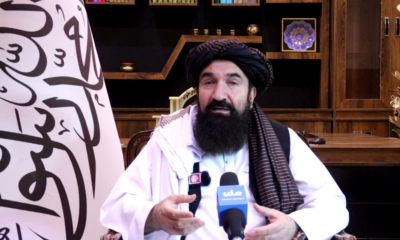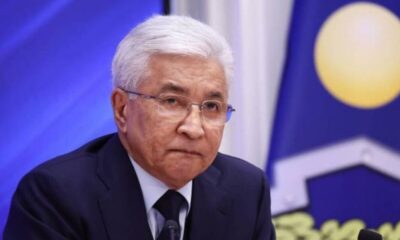Latest News
Biden says ‘May 1 deadline’ is hard in terms of tactical reasons

U.S. President Joe Biden on Thursday at the first formal White House news conference of his presidency said that it would be “hard” to withdraw the last U.S. troops from Afghanistan by a May 1 deadline, but he added that he did not think they still would be there next year, Reuters reported.
Biden comments come as his administration strives to build international pressure on the Taliban and U.S.-backed Afghan President Ashraf Ghani’s government to reach a peace agreement and a ceasefire before the deadline.
According to Reuters report peace talks, however, are stalled and by suggesting U.S. troops would be gone next year, Biden risked weakening Ghani’s bargaining hand and encouraging the Taliban, who U.S. officials say have stepped up violence in their quest to oust him, to play for time, some analysts said.
During the news conference Biden said it would be hard to meet the May 1 deadline to withdraw the last 3,500 U.S. troops “just in terms of tactical reasons.”
"It’s gone be hard to meet May 1 deadline in terms of tactical reasons hard to get those troops out," Biden told reporters.
He apparently was referring to the enormous logistical challenges of pulling out the roughly 10,000 American and foreign troops and their equipment within the next six weeks.
Biden was asked if it was possible that there still would be U.S troops in Afghanistan next year. “I can’t picture that being the case,” he responded.
The Taliban have indicated they could resume attacks on foreign troops if Biden does not meet the May 1 deadline.
The deadline was set in a February 2020 deal struck with the Taliban under former President Donald Trump.
It called for a phased conditions-based drawdown of U.S. troops from America’s longest war. The Taliban were required to prevent Islamist militant groups such as al Qaeda from using Afghanistan as a base from which to attack U.S. and allied targets.
Trump, however, ordered the drawdown to proceed even though violence escalated, U.S. officials said the Taliban had failed to cut ties with al Qaeda and disputes delayed the start of the intra-Afghan talks on a ceasefire and a settlement to decades of strife.
Washington, meanwhile, has yet to act on its commitment to have U.N. and U.S. sanctions on senior Taliban leaders lifted.
The Taliban deny they are responsible for the surge in bloodletting or that there are al Qaeda fighters in Afghanistan.
Biden noted that Secretary of State Antony Blinken has been in Europe meeting with U.S. allies that have troops in Afghanistan and “if we leave, we are going to do so in a safe and orderly way.”
“The question is how and in what circumstances do we meet that agreement that was made by President Trump to leave under a deal that looks like it’s not being able to be worked out to begin with,” Biden said.
“We will leave. The question is when we leave,” he added.
U.S. peace envoy Zalmay Khalilzad, who negotiated the withdrawal deal for Trump and was kept on by Biden, has circulated a U.S.-drafted peace proposal that would replace Ghani’s government with an interim power-sharing administration.
Ghani repeatedly has rejected stepping aside, saying any transfer of power would have to take place through elections as required by the constitution. Taliban officials have said they would not participate in an interim government, but would recommend members.
Biden comments comes after former US National Security Advisor HR McMaster said on Wednesday night he is very concerned about the withdrawal of troops from Afghanistan and felt it could result in a “catastrophe” for the Afghan people and for the region.
Speaking at a Hoover Institute debate, McMaster said this “so-called responsible end of the war in Afghanistan, which I think could be catastrophic not only for the Afghan people but for the people of the region, for Europe; and also result in increased risk from Jihadist terrorist organizations”.
McMaster said he would like to ask President Joe Biden about the “resurrection of the language of responsible end of the war”. He said this term was last used in 2011 regarding the Iraq withdrawal.
“Of course we know what happened a couple of years later with the rise of ISIS there,” he said adding whether Biden was, as such, concerned “about replicating that experience in Afghanistan in a way that creates a humanitarian catastrophe.”
Latest News
IEA sets up new office to preserve ‘jihadi values’

The Ministry of Information and Culture announced this week it has established a new administrative office called the Directorate for the Preservation of Jihadi Values.
Acting Minister of Information and Culture Khairullah Khairkhwa said this directorate is tasked with “keeping alive the values of jihad and its history.”
Khairkhwa outlined the directorate’s three main functions: producing audio-visual content, establishing a “jihadi museum,” and documenting historical events.
He stated the museum would collect and archive artifacts from Afghanistan’s conflicts with Britain, the Soviet Union, and the United States.
He stressed that jihadi museums will also be built in the capital, and in provinces, to collect and display works related to jihad.
Latest News
CSTO chief says plan to bolster Tajikistan-Afghanistan border on the cards
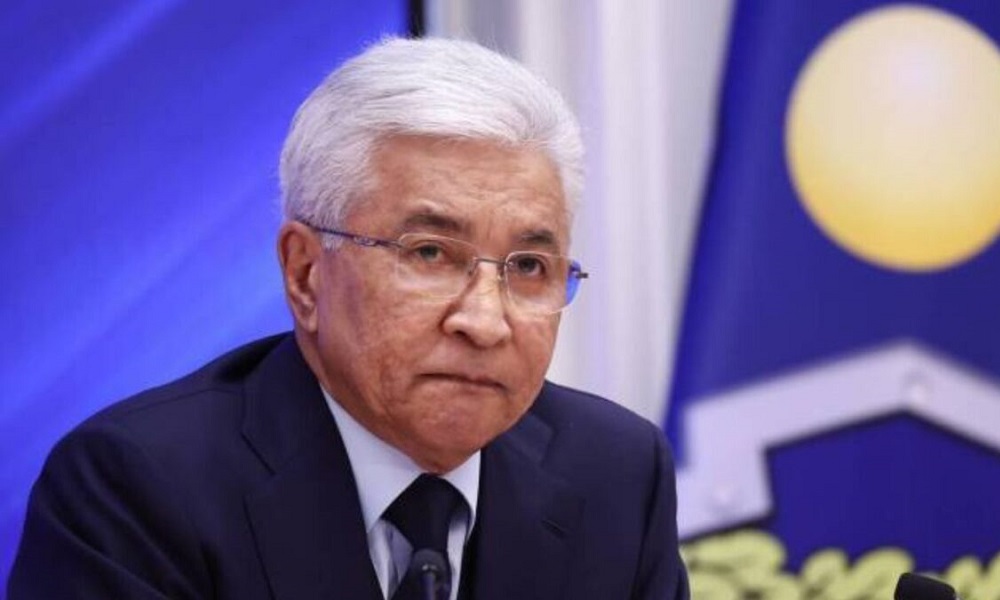
Imangali Tasmagambetov, the Secretary General of the Collective Security Treaty Organization (CSTO), has said the plan to strengthen the border between Tajikistan and Afghanistan will be approved later this month.
In an interview with STV Belarus, Tasmagambetov said: "The Collective Security Treaty Organization will approve the plan to strengthen the border between Tajikistan and Afghanistan on November 28 at a meeting in Astana."
He stated that the presence of militant groups in Afghanistan was a serious problem and that the approval of the plan to strengthen Tajikistan's border with Afghanistan will allow member countries of the Collective Security Treaty Organization to jointly guarantee the security of Central Asian countries.
The CSTO has on a number of occasions expressed concern about the security situation in Afghanistan.
The Islamic Emirate however, has repeatedly rejected claims of militant groups in Afghanistan and has said that the IEA will not allow any group to plan or carry out attacks from Afghanistan soil.
Tasmagambetov also discussed other challenges the organization faces.
“The CSTO is not an aggressive bloc. The task of the Collective Security Treaty Organization is to protect the territorial integrity, sovereignty and independence of the member states that are part of our organization.
“If we talk directly about the challenges and threats, these are primarily transnational terrorism, religious extremism, drug trafficking, illegal arms trafficking and illegal migration. We are working very seriously in all these areas,” he said.
Latest News
UN Afghanistan urges Islamic Emirate to ‘reverse erosion’ of women’s rights
United Nations Afghanistan marks International Day for the Elimination of Violence against Women
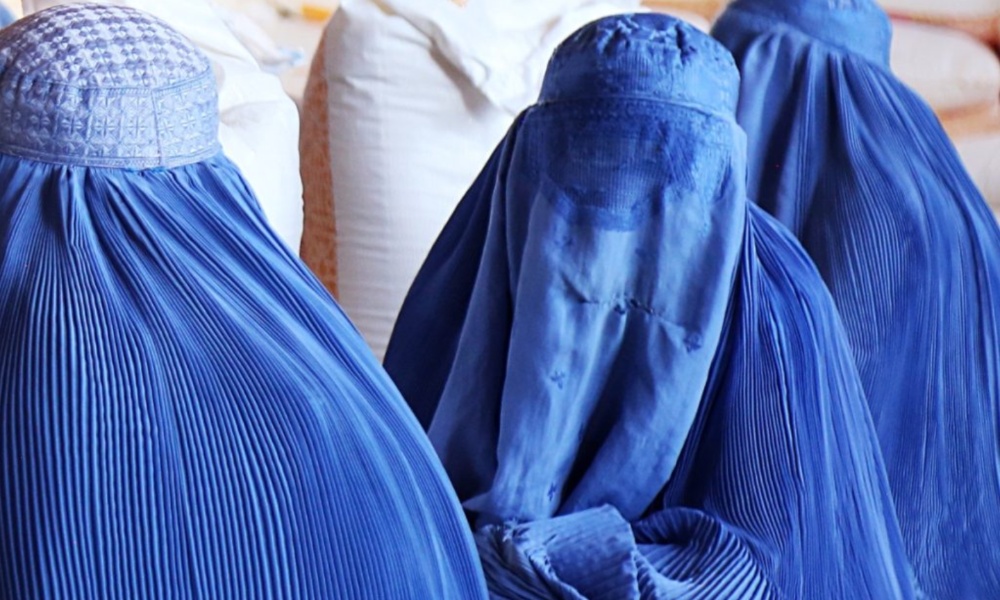
The United Nations in Afghanistan has called on the Islamic Emirate to take immediate action to end violence against women and girls and to reverse the systematic erosion of women’s rights that fosters such violence.
According to a statement issued by the UN, Afghanistan continues to have high rates of violence against women, which is exacerbated by the ongoing discrimination against women across all areas of life.
"We are at a critical juncture for the women and girls of Afghanistan. We need urgent action for justice to end violence against women and girls in Afghanistan,” said Roza Otunbayeva, Special Representative of the Secretary-General in Afghanistan.
The UN’s statement marks the International Day for the Elimination of Violence against Women and the start of the 16 Days of Activism against Gender-based Violence campaign.
This global campaign runs from November 25 - International Day for Ending Violence Against Women - to December 10, Human Rights Day.
“The fact that Afghan women and girls have less rights today than generations ago is a devastating reminder of the urgency of their struggle and the need for the international community to double down our efforts to stand with them, investing in their resilience, leadership and empowerment," said Alison Davidian, the Special Representative for UN Women in Afghanistan.
The Islamic Emirate has however stated on numerous occasions that women’s rights in Afghanistan are ensured in accordance with Sharia.
-

 Sport4 days ago
Sport4 days agoAriana News to broadcast IPL auction live and exclusively in Afghanistan
-

 Latest News3 days ago
Latest News3 days agoU.S. House approves bill on evacuation of Afghan allies
-
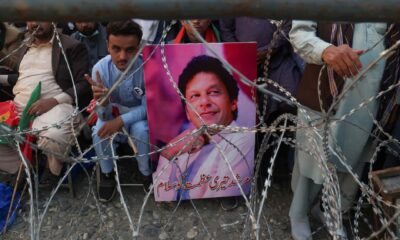
 Regional4 days ago
Regional4 days agoPakistan’s ex-PM Imran Khan gets bail in state gifts case, his party says
-
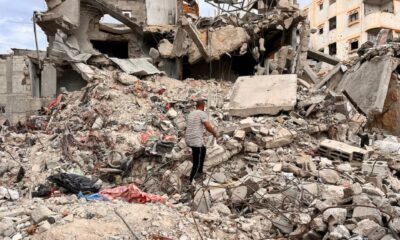
 World4 days ago
World4 days agoUS vetoes UN Security Council resolution on Gaza ceasefire
-

 Latest News4 days ago
Latest News4 days agoUN moves to unlock stuck climate financing for Afghanistan
-
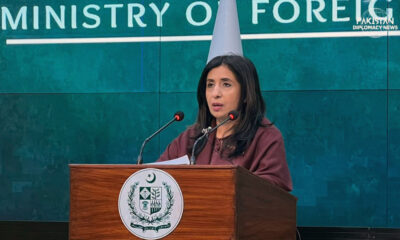
 Latest News4 days ago
Latest News4 days agoPakistan rejects suggestion of appointing a new special envoy for Afghanistan
-

 Sport5 days ago
Sport5 days agoPakistan trumps Afghanistan by only 13 runs in U19 Tri-Series One Day match
-
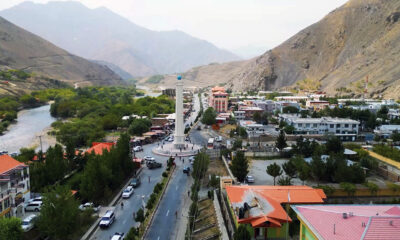
 Latest News4 days ago
Latest News4 days agoPanjshir to get modern hotel and other facilities amid growing tourism sector


